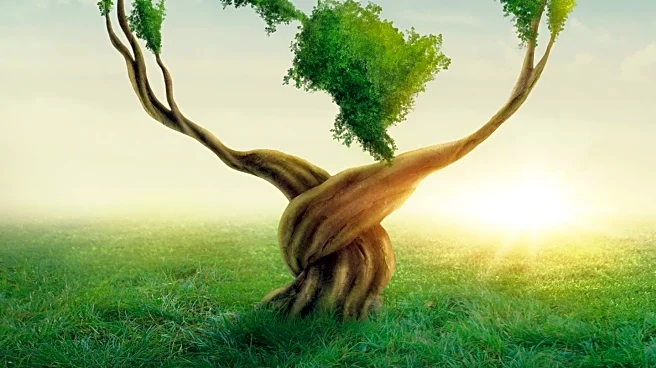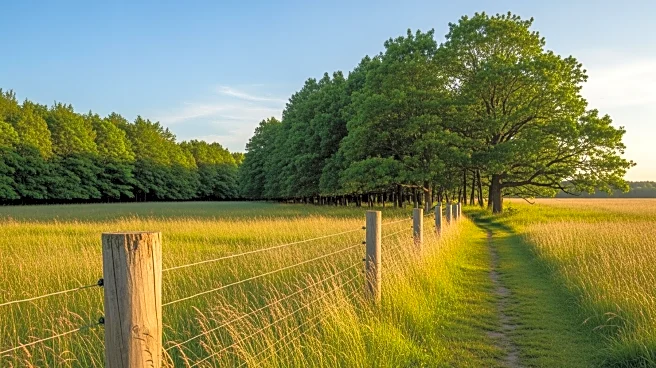What is the story about?
What's Happening?
The article discusses the urgent need for humanity to reassess its relationship with nature, as highlighted by American environmentalist Rachel Carson in her book 'Silent Spring'. The year 2025 has been marked by numerous natural disasters, including wildfires, flash floods, and hurricanes, which have affected people globally. The piece emphasizes the impact of human activities on the environment, such as deforestation, urbanization, and the exploitation of natural resources, which have contributed to these disasters. It calls for a shift in societal values and practices to better coexist with nature, drawing on insights from philosophers, poets, and environmentalists.
Why It's Important?
The significance of this discussion lies in the potential for a paradigm shift in how societies interact with the environment. The current trajectory of environmental degradation poses a threat not only to ecosystems but also to human survival. By re-evaluating our relationship with nature, there is an opportunity to mitigate the effects of climate change and prevent further disasters. This could lead to changes in public policy, economic practices, and cultural attitudes, fostering a more sustainable future. The article suggests that integrating ecological awareness into education and policy-making could be crucial for long-term environmental health.
What's Next?
The article implies that the next steps involve engaging with policymakers and society at large to foster a deeper connection with nature. This includes promoting environmental education, supporting sustainable practices, and encouraging individuals to experience nature directly. There is also a call for artists and educators to incorporate environmental themes into their work, helping to raise awareness and inspire action. The piece suggests that a collective effort is needed to change the stories and narratives that have led to the current environmental crisis.
Beyond the Headlines
The article explores the cultural and linguistic dimensions of our relationship with nature, noting a decline in nature-related vocabulary and metaphors. It highlights the role of art and literature in shaping perceptions of the environment and calls for a revival of nature-centric language and storytelling. This cultural shift could help reframe how people view and interact with the natural world, fostering a sense of stewardship and responsibility.














